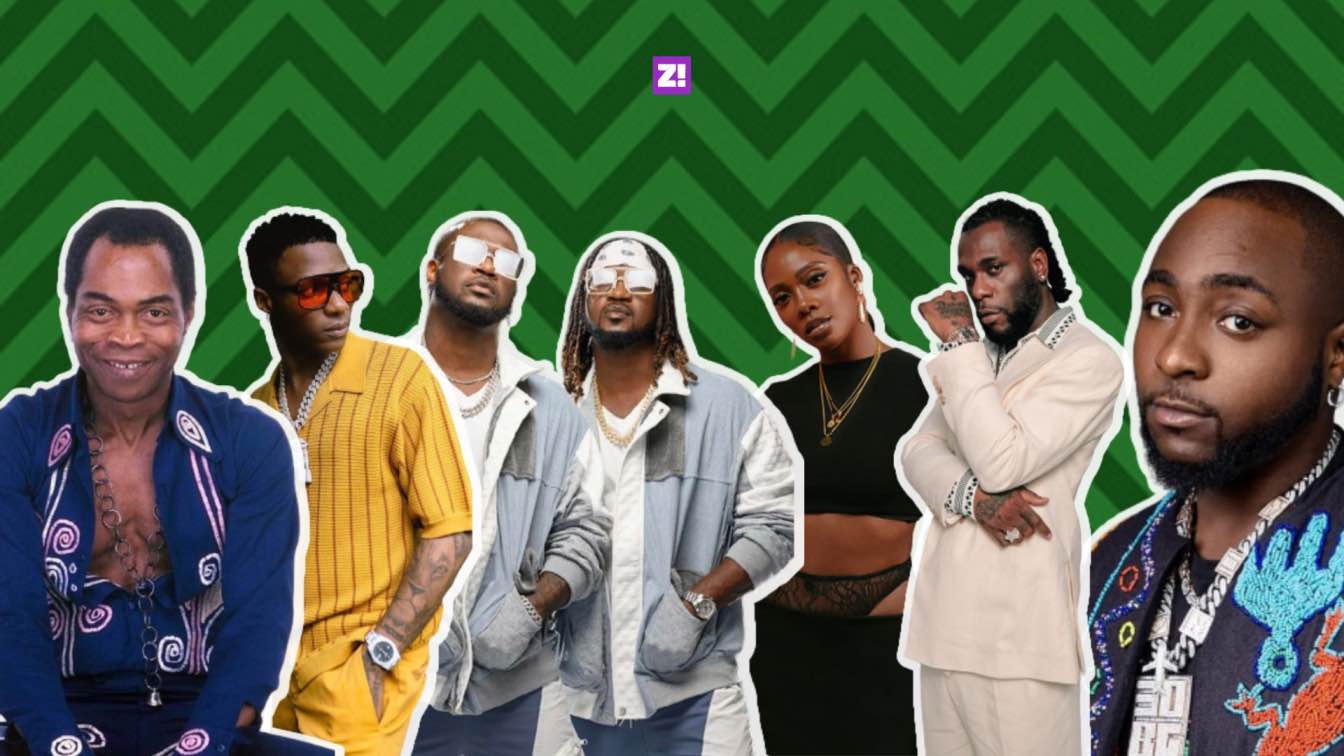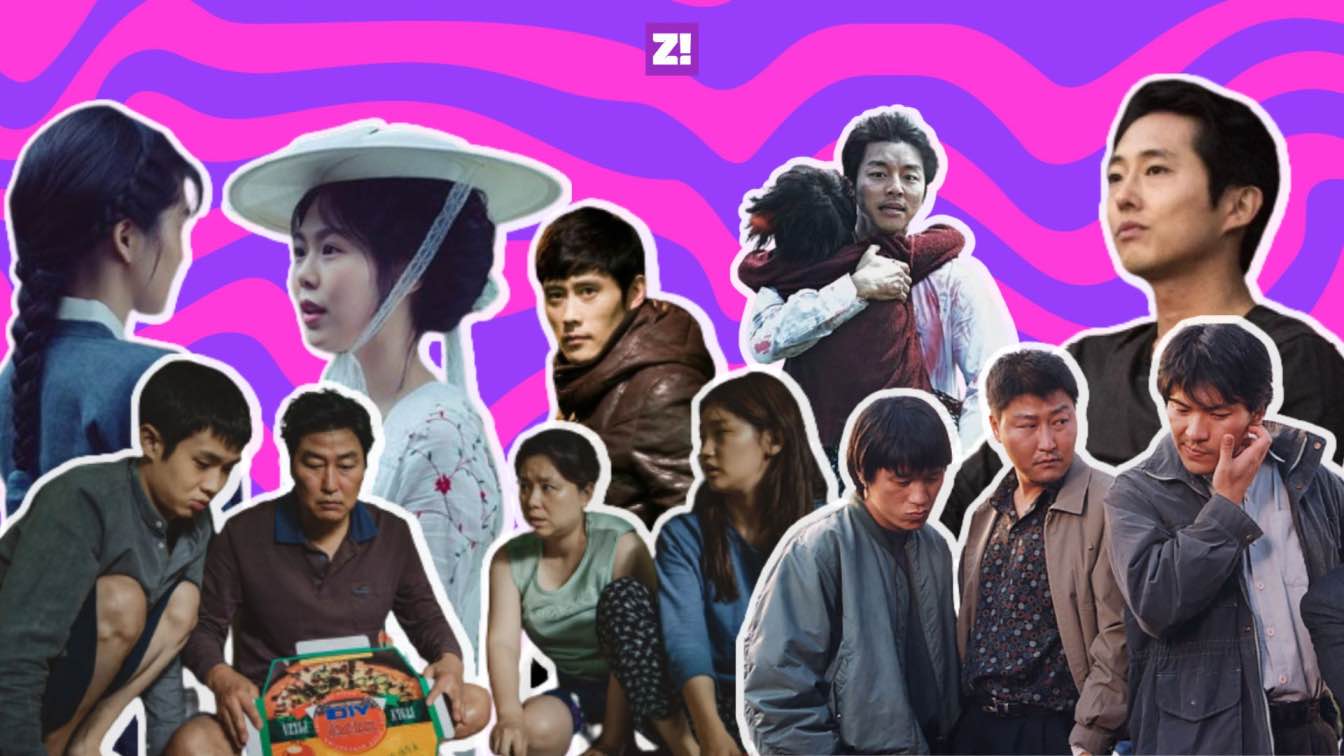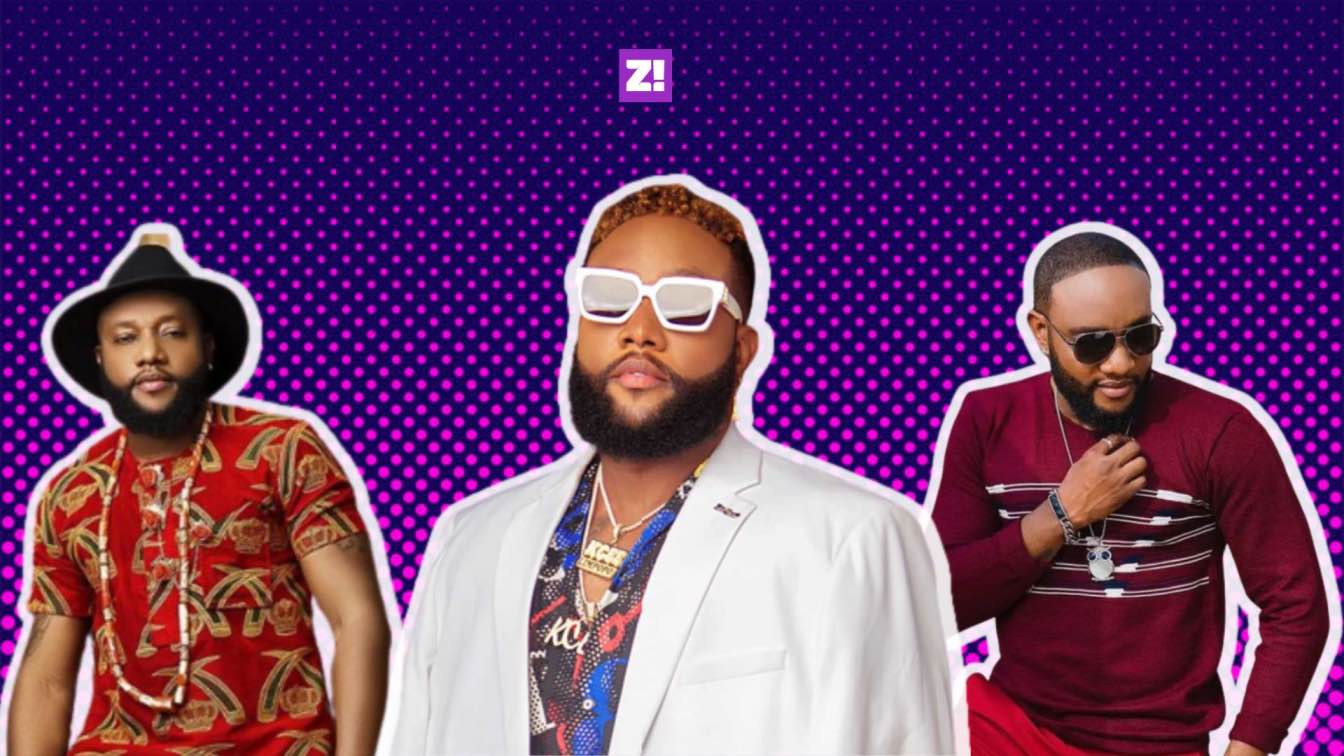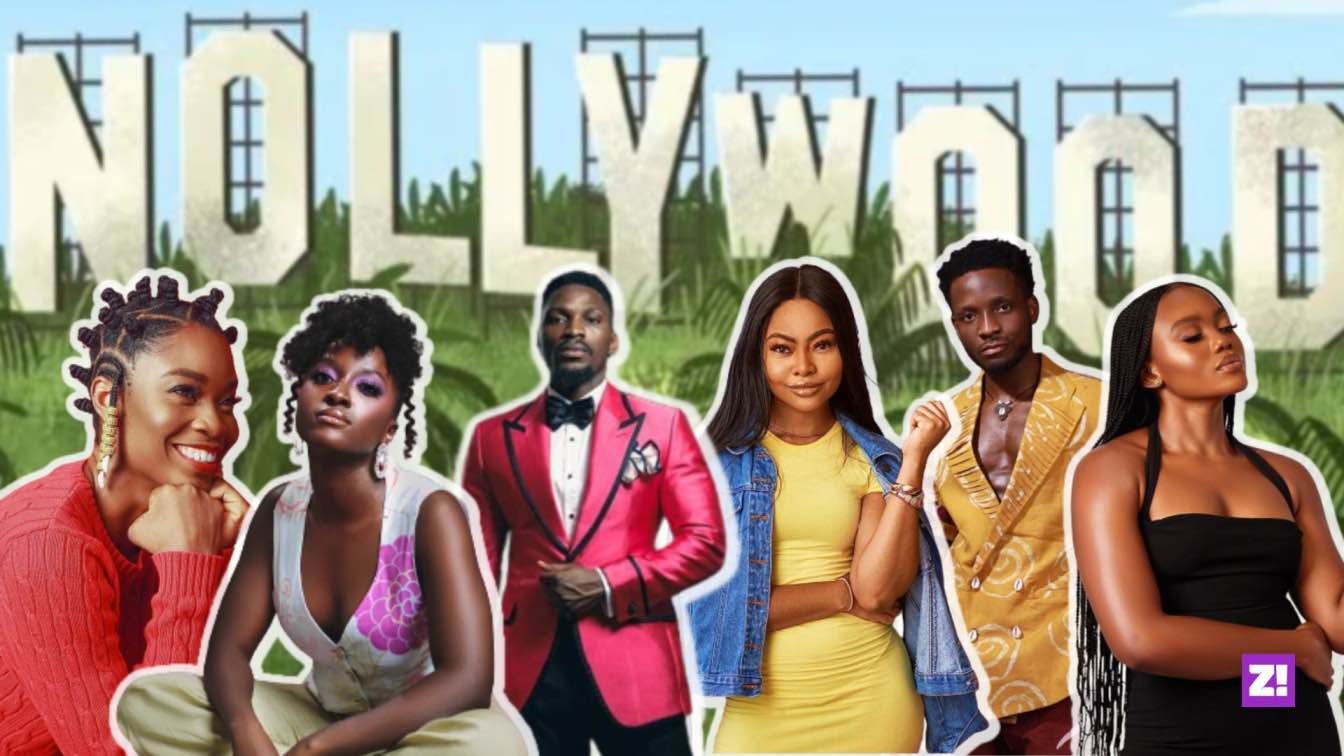My Bro is a weekly Zikoko series that interrogates and celebrates male friendships of different forms.
Nnamdi and Yela both understand what position they hold in their friendship — one is dominant and outspoken, the other is a supporting character who chooses violence once in a while. This dynamic might prove difficult for some friends, but these two have figured out a way to complement each other and make it work.
In this episode of My Bro, they talk about surviving loss together, feeling guilty when one friend gets left behind and why they’re perfect for each other.

Let’s take a trip down memory lane
Nnamdi: My first recollection of you was around campus when we were in university. You used to sing at every opportunity, and it irritated me because you thought you were Bowen University’s version of Luther Vandross.
The first time we had a conversation was about 15 years ago at a cyber café in school. My phone rang, and you walked up to ask if you could get the ringtone. Again, I was irritated because I hate chit chatting with strangers.
Yela: I think your ringtone was John Legend’s Green Light. LOL. I love music, and most of the people in that school were sonically underdeveloped, so I gravitated toward many who shared the same musical taste.
I’d also seen you around school, always frowning in your black jalabiya. You had this presence that made you stand out every time you stepped into a room. It was intimidating. But I’m beginning to realise I’m attracted to dominant energy even in my platonic relationships because it allows me to take the backseat and fade into the background. That’s one of the reasons we work well as friends — you get the attention, and I can chill in a corner. Ying-yang.
Nnamdi: That’s why even though I was rude to you when you asked for the song, you just stood there shining your teeth.
We became friends when
Yela: I had a couple of friends in school before I met you. We hung out together, but none of them got my sense of humour. With you, I finally met someone who got my pop culture references and listened to the type of music I liked. We also joined a fashion organisation that put us in each other’s space all the time, so I got to know you more.
Finding out you lived in Abuja, just like me, also helped. You graduated and moved back before me, so when I returned to Abuja, you were the only person I knew from school. We hung out some more, and that’s when our friendship really started to grow.
Nnamdi: Yes! We were friends in school, but graduating, moving back to Abuja and living in the same city brought us closer. Our mums even got to know each other, and your mum, who doesn’t trust anyone around you, started to rate me because she knew I was raised by a church woman. If only she knew I was an insane person. LOL.
But If I have to pinpoint the moment I knew our friendship was the real deal, it’ll be when my mum had cancer.
He came through for me
Nnamdi: When my mum fell ill in 2011, I had to take up the responsibility of running her business. I didn’t know how to communicate my feelings, but you were there through all of it. You’d call me every day, ask if I was going to her office and follow me there.
We didn’t have to talk. You just kept me company at my mum’s office, assisted me with errands and things like that. It was the reassurance of knowing if I ever needed to break down or talk about my feelings, you were literally nearby. This is how our friendship has moved since then. We don’t have to talk about everything, but we know the other person is around.
Yela: I figured you needed someone, but not someone who’d be all up in your face forcing you to deal with feelings you weren’t ready to confront.
Nnamdi: In 2019, when my mum died, you were the first person I called. Even though it was my biggest fear come to life, I didn’t grieve like people expected me to. I think you cried more than me. Because of how calm I sounded when I broke the news to you, you called our mutual friends to come and check on me as I was in Lagos at the time.
From what I remember about the burial and the days leading up to it, you were at my house every morning at 7 a.m. You accompanied me to get a casket, and other things I never saw myself doing. It was a lot.
Yela: I thought you were going to hurt yourself because I knew how close you were to your mum. It was also triggering for me because I’d experienced losing my dad. I wanted to be like a cushion for you amid the chaos. It was a no-brainer for me. All I did was show up.
Nnamdi: And it worked because you gave me space when I needed it. Random, but another significant moment in our friendship has to be when we both tried to go abroad for our master’s. I got in, but you had to stay back in Nigeria.
Working out our friendship when plans fail
Yela: I remember we started the whole master’s journey together after school. We’d become tight then, so we planned how we’d live life when we moved to the UK. You got in, but unfortunately for me, I didn’t.
Nnamdi: I could tell it affected you, but you were trying to be positive so that I wouldn’t feel bad about it. Your mum called me while I was in the UK and told me, “You and Yela are more than friends. He’s your brother. No matter what happens, you have to carry your brother along.” She said this because you were apparently in a mood, and it has sort of guided the way I approach our friendship.
Yela: I was in a mood because right from the time we started, I could see you making strides, but nothing was happening for me. It wasn’t jealousy; I was sad because I wouldn’t be part of this grand plan we’d made.
Secondly, I didn’t have a job, so my life for about two years after university revolved around us hanging out. I became depressed at the thought of losing that for a while. I also felt this pressure not to make you feel guilty, so I tried to act like everything was fine.
Nnamdi: I felt guilty. I tend to feel that way when I have access to something, but I can’t share that access with you. This guilt made me overcompensate because I’d call you more than usual, so it wouldn’t look like I was having fun without you.
Even when I moved back after my master’s, I made sure I introduced you to all my friends so you wouldn’t feel left out. I did the most sha.
Yela: But, look, it all worked out. We’re here.

Understanding our friendship dynamic
Yela: Like I said, I feel like we work because my emotional frequency is the right fit for yours and vice versa. I understand when you want to shut off completely. I just show you that I’m here, and that’s enough.
While we’ve spoken about times when you bottled big emotions up, generally, you’re more outspoken than me. I hate confrontation. I used to be very passive-aggressive in our friendship, but you always want to address every issue so we can move on from it.
Your approach balances things out, but I’ve realised it’s unfair to burden you with trying to solve our issues. This also goes back to me preferring a relationship where I’m laid back. I’m working on ways to speak up when I feel upset or uncomfortable.
Nnamdi: I agree you don’t talk much when the issue involves us, and I tend to lead those conversations. But, omo, when it comes to defending me, you come through big time. As a big guy, people try to come for my weight—
Yela: And I fuck them up!
Nnamdi: Yes. And I do the same thing when people come for your music. Funny how I used to hate seeing you sing all the time in school. LOL.
Yela: The truth is, I don’t mind being a supporting character in this friendship. I mean, supporting characters still win Oscars and shit. The way I view it, we both don’t have to be at 100%. We don’t have to compete for air because we both know our strong points as individuals. Imagine if we had the same energy? It’d either be too dull (with my energy) or too chaotic (with yours).
What makes this friendship special?
Yela: I don’t know how to explain it, but our connection is different because I can tell you anything — even if you judge me. My life is better because you’re in it.
Nnamdi: I always say if I wouldn’t do something for you, there’s a high chance I wouldn’t do it for anyone else. I can talk to 100 people about a situation, but your opinion is what matters to me. You’re my voice of reason.
I recently saw a video about groups having reasonable and stable friends. I’m the problematic one who’s stubborn, and you’re the stable person who says, “Is this a good idea?”
The only time you’re problematic is when you’re in a relationship.
Yela: Wow. Nnamdi!
Holding each other accountable
Nnamdi: People don’t always know it, but you have a very hot temper, and your first reaction is usually to fight physically.
Yela: Exactly.
Nnamdi: I’ve noticed you come to report yourself to me before I find out you’ve fought outside. Like when you fought a soldier and called me from the cab. LOL.
I’m very honest with you when I think you’re wrong. My delivery could be better, but you know I don’t mean any harm. I’m just looking out for you.
Yela: You tell me I’m in the wrong all the time. I used to argue with you before, but I’ve realised you’re almost always right. I do the same too. When you have issues with someone, I show you where you fucked up. But the rule is we can criticise each other at home, but we must have a united front outside. To the death!
What holds this friendship together
Nnamdi: Our determination to enjoy life keeps us together. We want to eat at nice restaurants, travel, enjoy life, make money and be premium. We’re not where we want to be yet, but we’re on the way to that life.
Yela: We’ve seen each other at our worst, so now, we’re trying to live our best lives together. You’re the closest to what I’ll describe as my soulmate.
Nnamdi: Don’t forget we work with a “we” dream, not a “you” dream. Anything you want to accomplish gets added to my list and vice versa. We move together.
What would we change about our friendship?
Yela: Communication. I’m still working on being direct when I’m upset about something as opposed to being passive-aggressive or deep in my head.
Nnamdi: Communication for me too, but in a different way. I tend to be too direct. My tone might be a little aggressive when I’m pointing out something, but most times, it’s from a place of love.
Yela: Most times?
Nnamdi: LOL. Stop it.
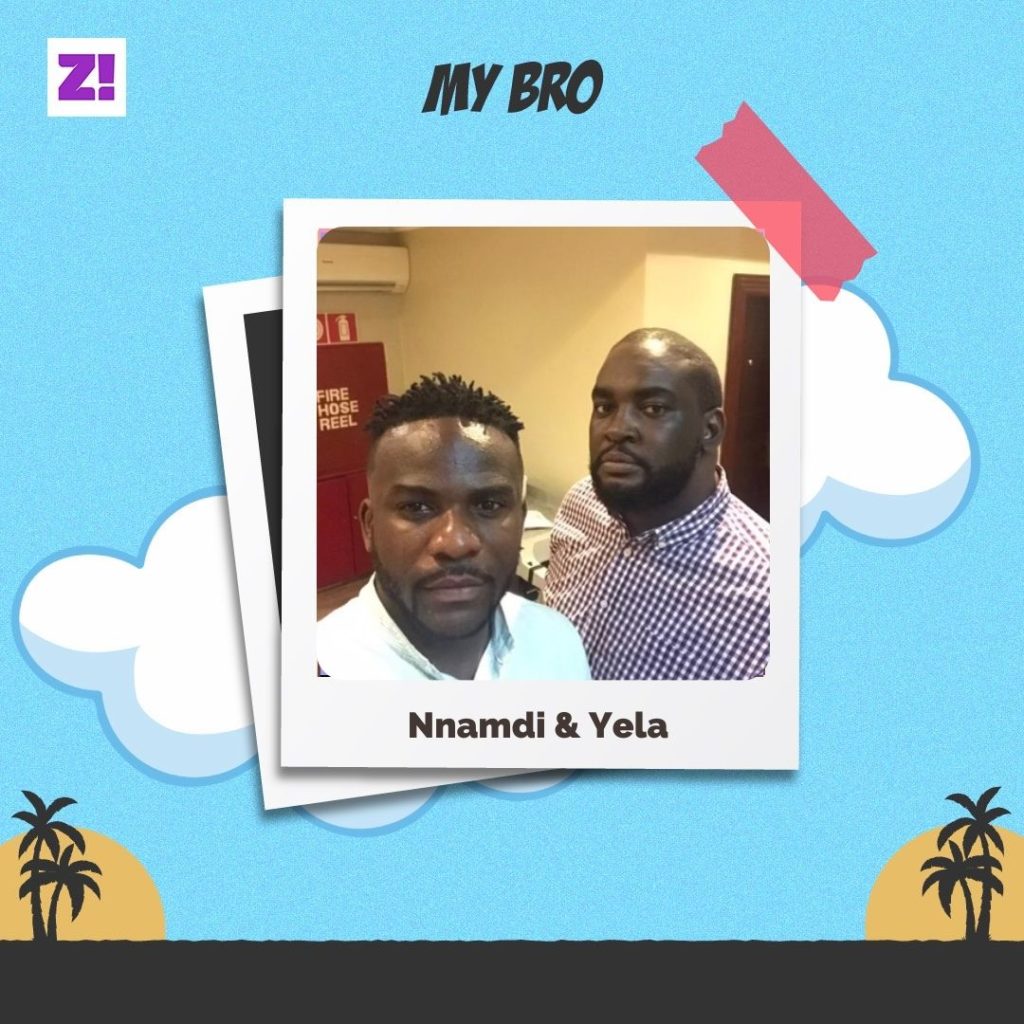
I want you to know
Yela: Before I met you, I never had a dominant male figure in my life because I grew up with my mum. My friendship with you feels like a brotherhood, and sometimes, you’re like a dad figure to me. You’ve nurtured, protected and taken care of me. These attributes come with being someone’s family, and that’s what you’re to me.
Know that I don’t take you or our friendship for granted.
Nnamdi: I’m incredibly proud of your journey. It’s been a hard adult life. LOL. And I’m grateful most of my adult journey has been with you by my side through tragedy and successes. It’s been a blast! And it’s only going to get better.
Do you have an interesting bro story you’d like to share? Fill this form and we’ll get back to you.
ALSO READ: Our Friendship Was Built on SAPA — Ama and Gideon

